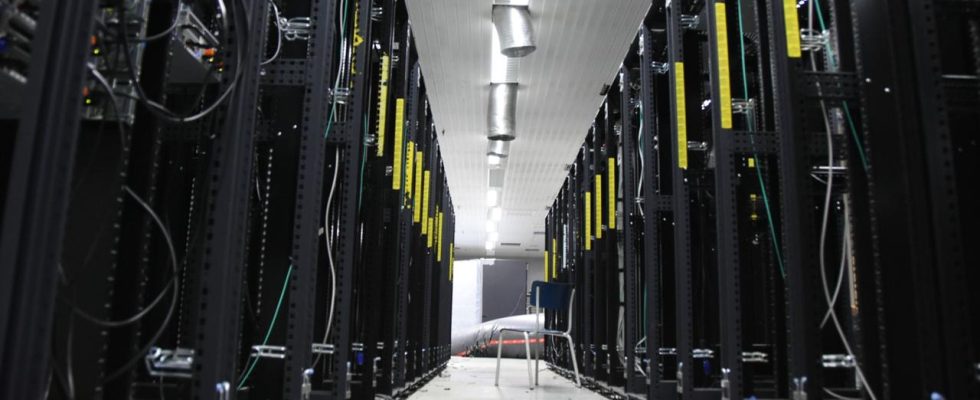faq
A number of criminal offenses are said to have been carried out via the servers of the “cyberbunker”, which is why the Trier district court sentenced the operators to membership in a criminal organization. The Federal Court of Justice is now examining the procedure.
What is the “cyberbunker” about?
“It was a really big showdown for our city. So nobody would have believed what was going on here,” said the mayor of Traben-Trarbach, Patrice Langer, four years after seven men and women lived in the tranquil town on the Moselle a woman was arrested while they were eating in a restaurant – lured by a police trick.
At the same time, a few kilometers away, in September 2019, several hundred people stormed a former NATO bunker in which those arrested operated an underground data center called “Cyberbunker”. At that time, officials found several hundred servers three floors underground, through which the customers of the “cyber bunker” mostly conducted illegal transactions on the Internet. Drug and arms trafficking, hacker attacks and even assassination orders are said to have been involved.
What is special about the “cyberbunker” procedure?
The accused had not dealt in drugs or weapons themselves, they had only made the servers, i.e. the technical infrastructure, available for money or bitcoins. For the first time, the Trier district court was not dealing with the “actual perpetrators”, the drug dealers, arms dealers and hackers, but with those who had made the business technically possible as web hosts. The question that arose: Is this criminal behavior?
What did the district court of Trier decide?
After a mammoth trial lasting 79 days, on December 13, 2021, the Trier Regional Court sentenced the eight defendants to several years in prison for membership in a criminal organization. According to the judges, the business model of the “cyber bunker” consisted precisely in facilitating illegal business. The defendants had advertised their services on the website with clear words: they promised to host any content provided it was not child pornography or terrorism.
The so-called “Stay online policy, no matter what” was advertised as a free additional service: Everything will be done to protect customers from access by state authorities and to keep them online. The defendants also tried to implement this promise when they were made aware of illegal content. The district court was therefore convinced: the accused were members of an association whose purpose was to commit crimes.
Why did she Public prosecutor Revision filed?
The general public prosecutor’s office in Koblenz, which is responsible for cybercrime, had also requested a conviction for aiding and abetting some of the actual crimes that were carried out via the servers, such as drug trafficking.
However, the district court in Trier rejected this and acquitted the accused of this accusation. Objectively speaking, the rental, installation and administration of the servers is an aid to the offences. However, the so-called Telemedia Act regulates that service providers are only responsible for third-party content if they are aware of the illegal activity. However, it would not have been possible to prove that the accused knew specifically about the individual crimes. Even according to the other criteria that the Federal Court of Justice (BGH) has so far developed for aid, it is not enough for a conviction.
Isn’t there a contradiction in that?
Some see a contradiction in this assessment. Anyone founding an association to enable illegal business must also be aware of the crimes and be sentenced for them. And in fact: There has probably never been a conviction solely for membership in a criminal organization. As a rule, there are only together with the convictions for other crimes. The criminal organization then moves into the background.
The district court of Trier has justified its legal opinion relatively extensively as to why there is another way. Whether the highest criminal judges at the BGH see it the same way will now be an issue in the appeal.
Why did the defendants appeal?
The eight defendants have also appealed. They had applied for acquittals at the district court and also relied on the Telemedia Act. Because they had no knowledge of the crimes, they should not be sentenced as members of a criminal organization.
What does the BGH examine?
In the revision before the Federal Court of Justice, the procedure is not repeated, no witnesses are heard and no other evidence is collected. The chief criminal judges only check whether there are any legal errors in the written judgment of the Trier Regional Court.
Precisely because this is new legal territory, exciting questions should be clarified after the decision of the BGH: Can web hosts make themselves punishable under certain circumstances, even if they knew nothing about the specific crime? And is a conviction for membership in a criminal organization also possible if no knowledge of the specific crimes can be proven?
When can a verdict be expected?
The hearing at the BGH is taking place today. In all likelihood, however, a judgment will not be made for a few weeks.

